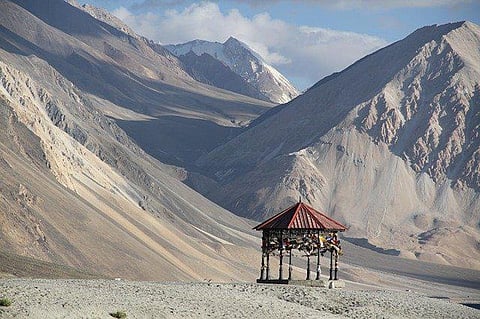Adding that the Valley is a storyteller's abode, a place where he grew up listening to legends and stories from his early years, this Delhi-based journalist says that inspiration was always… just a block away. "As journalists, we are always reporting facts. There is no scope for putting your own opinions out there. Now, when you're from a place like Kashmir, there are so many stories to tell — so I have always had many stories and observations in my head, throughout my life there. When I used to get some time off from my journalistic work, I would always pen down these stories and observations. Over time, these stories took the shape of a novel and I approached the publishers."


